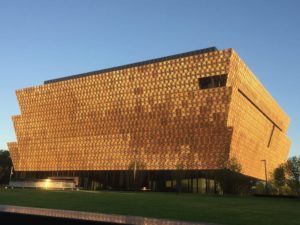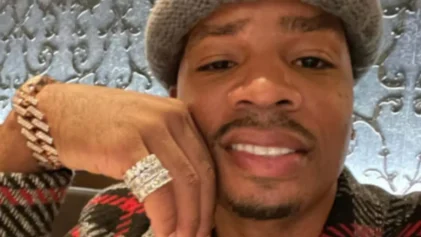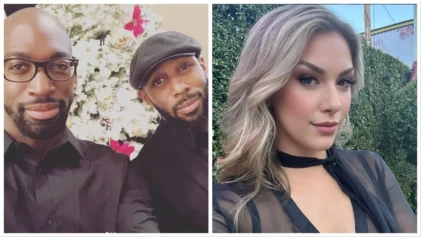
National Museum of African American History and Culture (rexhammock Flickr)
Upon the opening of the Smithsonian’s National Museum of African American History and Culture last month, many visitors have flocked to the site. Because guests continue to pour through its doors in Washington, D.C., advanced tickets will remain unavailable through March 2017.
The museum revealed the news on its official website. Although passes are free, they are timed. Anyone wishing to obtain an advanced pass will be out of luck. Instead, visitors can get same-day passes by waiting in line at the museum’s entrance on Constitution Avenue beginning at 9:15 a.m. each day. Only a limited quantity of same-day passes are available, and visitors cannot purchase them by phone or online.
Additionally, the organization promised to announce when advanced passes for April through June 2017 will be available for purchase.
The Black history and culture museum opened on Sept. 24. According to WCVB.com, officials expected an estimated 7,000 daily visitors. However, that number more than quadrupled with almost 30,000 visitors each day.
It was not just the public who felt excited over the historical space’s opening. Many Black celebrities forked over millions of dollars for funding ahead of its debut.
Denzel Washington and wife held a fundraiser in May that collected $17 million for the institution.
That same month, Shonda Rhimes, the hit ABC TV producer, gifted $10 million alone. Oprah Winfrey, actor Samuel L. Jackson and former Secretary of State Colin Powell contributed to the $245 million raised for the museum.
Falling in line with a huge contribution of his own was NBA legend Michael Jordan. He gave $5 million to the Smithsonian’s museum group.
“I am grateful for the opportunity to support this museum,” Jordan said in an August statement. “I also am indebted to the historic contributions of community leaders and athletes such as Jesse Owens, whose talent, commitment and perseverance broke racial barriers and laid the groundwork for the successful careers of so many African Americans in athletics and beyond.”
And though he’s not well-known, Black billionaire Robert Smith’s $20 million gift became the largest single donation behind Winfrey’s $21 million grant.


